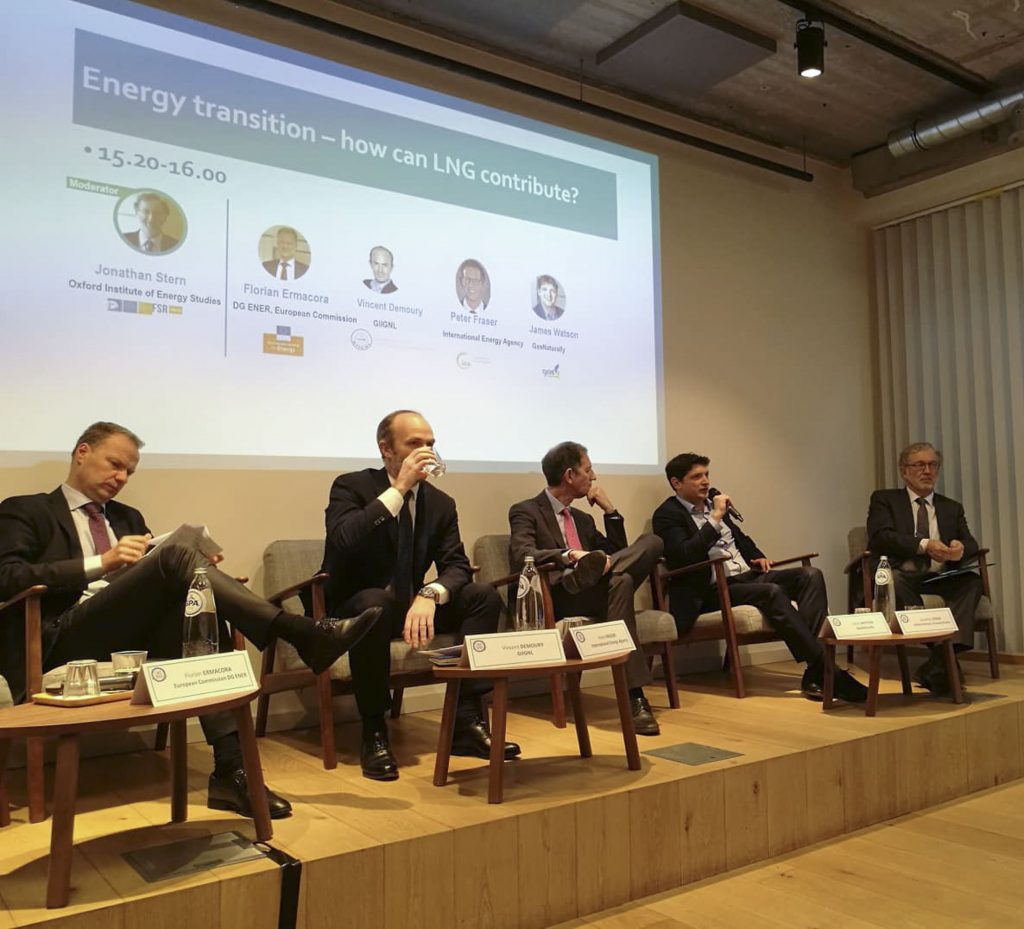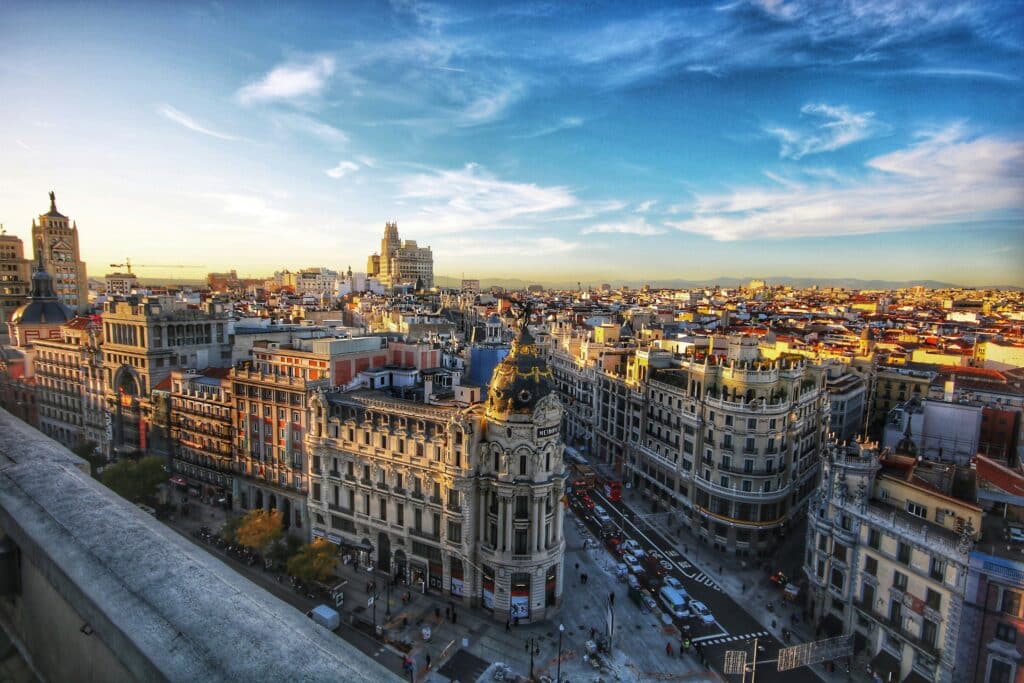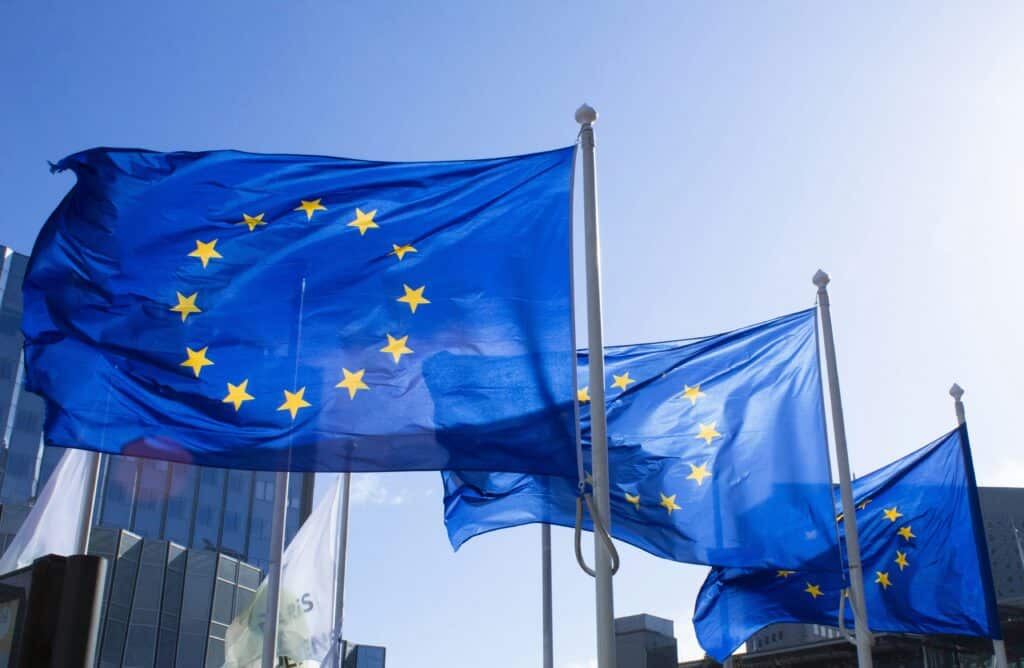Liquefied Natural Gas and the EU Green Deal: teaming up for a decarbonised 2050
Highlights and interviews from the workshop held on 20 January in Brussels.
Gas will have a role to play in the transition towards a carbon-neutral economy (...) in particular by making full use of the potential of affordable liquefied natural gas.
The Florence School of Regulation, together with GasNaturally, supported the “LNG and the EU Green Deal: teaming up for a decarbonised 2050” workshop, organised by LNG Protocol. LNG Protocol is the informal communication platform of 9 organisations (GIE, Eurogas, NGVA, GIIGNL, SGMF, SEA/LNG, SIGTTO, Marcogaz, IGU).
Three major topics were on the radar:
- Energy transition – how can LNG contribute?
- Road transport – powering engines with sustainable solutions
- Maritime transport – cleaner cruising to 2050
In her mission letter to the Commissioner for Energy Kadri Simson, the European Commission President Ursula von der Leyen highlighted the potential of affordable Liquefied Natural Gas.
Natural gas is indeed replacing coal in many countries, hence taking an important role in Europe’s 2050 decarbonisation pathway and becoming a key driver towards new green policies. Switching from lignite to gas reduces CO2 emissions, as well as increasing the utilisation of gas-fired generation.
Natural gas often flows in the form of LNG and, in terms of supply growth, 2019 was a record year for the LNG industry.
How can LNG contribute to the energy transition?
Main takeaways from the workshop:
- The great LNG influx into Europe from the US and other non-EU countries depressed spot gas prices, resulting in substantial coal-to-gas switching and emission savings in the power sector.
- Moreover, existing gas networks and LNG infrastructure are well placed to facilitate higher volumes of renewable, decarbonised and synthetic gases that are injected into the gas grid and directly used in transport applications.
- In the power generation sector, replacing coal with gas is the most effective way to reduce GHG emissions and emissions of pollutants such as particulate matter, SOx, and NOx.
- Besides fuel replacement to achieve fast and cost-effective decarbonisation, it is essential to consider all available technologies/resources and to boost energy efficiency by building smart sector integration between electricity and gas. Although LNG has great potential, emissions, especially methane emissions, are still a big concern.
- In the following years and decades, LNG decarbonisation and emission reduction will mainly depend on the development of CCS, bioLNG and other sources that fulfill requirements towards 2050 targets.
- In transport, LNG is enjoying something of a heyday right now for achieving long-term decarbonisation targets and IMO 2020 goals. The International Maritime Organization (IMO) regulations are limiting sulfur content of bunker fuel to 0.5% (down from 3.5%) starting on January 1, 2020.
- Heavy-duty road transport and shipping are hard-to-electrify sectors. Achieving flexibility, that logistic operations require, is only possible if fuel energy density and distribution infrastructure are adequate. Switching from conventional fuels to LNG, for heavy-duty vehicles, depending on engine technologies, offers immediate CO2 emission reduction. The utilisation of synthetic and bioLNG reduces GHG emissions to nearly 100%.
- The environmental challenges are similar in rail transport since engines are similar in size compared to those used in road and maritime sectors. Although LNG is a ticket to a clean and sustainable energy system, it is necessary to continue and speed up the full implementation of the alternative fuels infrastructure directive (2014/94/EU), increase share of renewable gases, to apply preferential taxation, to improve air quality in coastal areas, to classify small-scale LNG projects and to accelerate the use of LNG in the transport sector through undertaking adequate measures.







